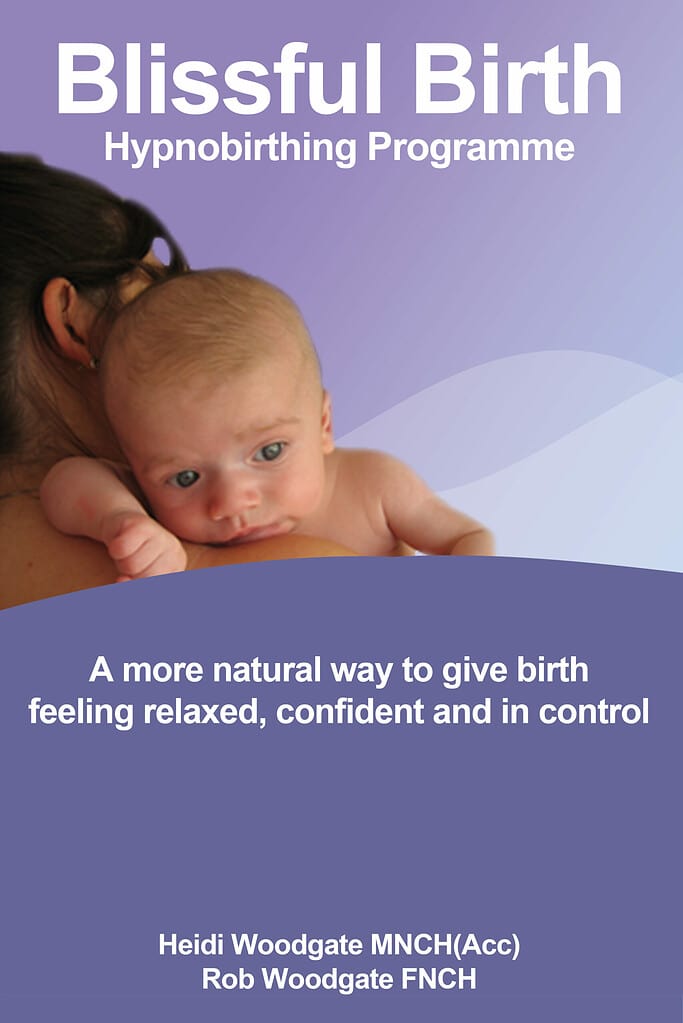Dramamine is a widely recognized medication for motion sickness. It can also help with morning sickness during early pregnancy, which makes it attractive to pregnant women grappling with pregnancy nausea.
This guide aims to provide a comprehensive overview of Dramamine, its effects, and its potential implications during pregnancy.

Table of Contents
Quick Answer
While the Food and Drug Administration (FDA) and many healthcare professionals believe Dramamine is safe during pregnancy, the recommended dosage can vary based on individual needs and the trimester of pregnancy.
Uncontrolled pregnancy sickness can also lead to complicating factors, such as dehydration. You should therefore consult with a healthcare provider if your pregnancy nausea requires medication.
What is Dramamine?
Dramamine, scientifically known as dimenhydrinate, is an over-the-counter antihistamine medication primarily designed to prevent and treat the symptoms of motion sickness.
At its core, Dramamine functions by reducing the effects of the inner ear’s imbalance, which is responsible for symptoms like nausea, dizziness, and vomiting.
Dramamine is approved by the Food and Drug Administration (FDA) for Category B use, which means animal studies show that it doesn’t harm the fetus or cause abnormalities.
There are, however, no definitive studies in humans.
Dramamine and Its Effects
Does Dramamine make you drowsy?
One of the commonly reported side effects of Dramamine is drowsiness. This isn’t surprising, given that the medication works by affecting the central nervous system.
For many, this drowsiness is mild and short-lived. However, for some, it can be profound enough to interfere with daily activities.
It’s essential to be aware of this potential side effect, especially when planning activities that require alertness, such as driving or operating machinery.
Is Dramamine the same as Bendaryl?
At first glance, Dramamine and Benadryl might seem similar. Both are antihistamines and can induce drowsiness. However, they are distinct medications with different active ingredients.
Dramamine contains dimenhydrinate, while Benadryl contains diphenhydramine.
While both can be used to treat symptoms of allergies and motion sickness, their dosages, durations of action, and potential side effects can vary.
Safety of Dramamine During Pregnancy
Pregnancy is a time of heightened caution, with every medication and supplement under scrutiny. When it comes to Dramamine, many wonder about its safety profile during this critical period.
Can you take Dramamine while pregnant?
The general consensus among healthcare professionals is that Dramamine is low-risk during pregnancy.
However, like any medication, it’s not entirely without potential risks. So it’s always recommended to consult with a healthcare provider before taking Dramamine or any other medication during pregnancy.
Does Dramamine cross the placenta?
One of the primary concerns with any medication during pregnancy is its ability to cross the placenta, potentially affecting the fetus.
Dramamine, like many medications, can indeed cross the placenta[1]. Research suggests that while Dramamine can reach the fetus, the amounts are minimal and usually don’t pose significant risks.
Nonetheless, this is one of the reasons why you should consult a healthcare provider before using it.
How much Dramamine is safe for pregnancy?
Dosage is a critical factor when considering any medication during pregnancy. For Dramamine, the recommended dosage might vary based on individual needs and the trimester of pregnancy.
While many healthcare providers might suggest standard dosages, it’s essential to follow the personalized recommendations of your healthcare provider.
Overdose of dramamine is known to cause extreme drowsiness, irritability, hallucinations, and seizure.
Is It Safe to Take Sudafed While Pregnant?
Sudafed safety during pregnancy is a concern for many expectant mothers. While it may provide relief from nasal congestion, studies suggest potential risks. Sudafed contains pseudoephedrine, a decongestant that can cross the placenta. Consult with your healthcare provider to determine safer alternatives or lower dosage options if necessary.
Understanding Sickness During Pregnancy
Motion and morning sickness are discomforting phenomenon, which can be particularly challenging during pregnancy.
Hormonal changes, heightened senses, and physical transformations can make pregnant women more susceptible to both these conditions.
Motion Sickness vs. Morning Sickness
The symptoms of motion sickness often overlap with morning sickness, making it challenging to distinguish between the two.
While both conditions can cause nausea and vomiting, their triggers and durations differ.
Motion sickness is typically linked to movement and can subside once the motion stops. It can, however, be made worse if you are already experiencing morning sickness.
In contrast, morning sickness is often persistent, driven by hormonal changes, and isn’t necessarily tied to any specific triggers.
Causes and Symptoms of pregnancy nausea
Hormonal Fluctuations
One of the primary reasons pregnant women experience heightened sickness is due to the surge of hormones, especially human chorionic gonadotropin (hCG) and estrogen.
These hormones, vital for maintaining pregnancy, can also affect the stomach and intestines, leading to increased sensitivity to motion.
Enhanced Sense of Smell
Many pregnant women report a heightened sense of smell, which can make them more susceptible to nausea, especially when exposed to strong odors. This enhanced olfactory sensitivity, combined with motion, can trigger sickness.
Inner Ear Sensitivity
The inner ear plays a crucial role in maintaining balance. During pregnancy, changes in blood volume and pressure can affect the inner ear’s functioning, making some women more prone to sickness.
Gastrointestinal Changes
Pregnancy often slows the digestive process, leading to heartburn, indigestion, and slower stomach emptying. These changes can exacerbate the feeling of nausea when in motion.
Previous Experiences
Women who have experienced motion sickness before pregnancy might find themselves more susceptible during this period due to the combined effects of pregnancy-related changes and previous sensitivities.
Fatigue
Pregnancy often brings with it fatigue, which can lower the threshold for discomfort and make one more susceptible to sickness
Alternatives and Precautions
Every individual is unique, and while Dramamine might be a suitable solution for some, others might be on the lookout for alternatives, especially during pregnancy. Moreover, understanding the precautions associated with any medication or remedy is crucial.
What is safe to take for nausea while pregnant?
Nausea is a common companion during pregnancy, and finding relief becomes a priority for many. Apart from Dramamine, there are several other medications and natural remedies deemed safe during pregnancy.
For instance, Vitamin B6 supplements have shown promise in alleviating nausea without posing risks.
Other medications, such as Doxylamine, might be recommended in combination with Vitamin B6.
However, the golden rule remains: always consult with a healthcare provider before introducing any medication or supplement during pregnancy.
Other ways to alleviate nausea during pregnancy
Nausea is a common companion for many women during pregnancy, especially during the first trimester. While medications can offer relief, many women prefer natural remedies or lifestyle changes to manage their symptoms. Here’s a comprehensive guide to various strategies that can help:
- Ginger: This root has been used for centuries to treat nausea and vomiting. Whether consumed as tea, in foods, or as a supplement, ginger can offer significant relief. Ensure any ginger supplements are approved for pregnancy use.
- Small, Frequent Meals: Instead of three large meals, consider eating smaller amounts more frequently throughout the day. This approach can prevent the stomach from becoming too full or too empty, both of which can exacerbate nausea.
- Stay Hydrated: Dehydration can worsen nausea. Drink plenty of water throughout the day, and consider sipping on hydrating electrolyte solutions if you’ve been vomiting.
- Avoid Triggers: Many pregnant women find certain smells or foods exacerbate their nausea. Identify and avoid your triggers. This might mean asking a partner to cook or avoiding certain sections of the grocery store.
- Rest: Fatigue can intensify nausea. Ensure you’re getting enough sleep and consider taking short naps during the day if needed.
- Acupressure and Acupuncture: Some women find relief from nausea through acupressure or acupuncture. Acupressure wristbands, often marketed for motion sickness, can be particularly helpful.
- Vitamin B6: This vitamin can help alleviate nausea for some pregnant women. Always consult with a healthcare provider before starting any supplements during pregnancy.
- Mint: Peppermint and spearmint can soothe an upset stomach. Consider sipping on mint tea or even just smelling fresh mint leaves.
- Lemon: The scent of fresh lemon or sipping on lemon-infused water can help reduce feelings of nausea for some women.
- Stay Upright After Eating: Lying down immediately after eating can slow digestion and trigger nausea. Try to remain upright for at least an hour after meals.
- Distract Yourself: Sometimes, the best remedy is a distraction. Engaging in a light activity, reading, or even watching a movie can take your mind off the nausea.
- Fresh Air: Stuffy environments can exacerbate feelings of nausea. Ensure your living spaces are well-ventilated, and consider taking short walks outside for fresh air.
- Avoid Spicy and Greasy Foods: These can irritate the stomach and exacerbate nausea. Opt for bland, easy-to-digest foods.
Conclusion
Pregnancy is a beautiful yet challenging journey, filled with myriad experiences and symptoms. Nausea, often exacerbated by motion sickness, is a common one.
While medications like Dramamine offer relief, understanding their implications, alternatives, and precautions is paramount.
Uncontrolled pregnancy sickness can lead to complicating factors, such as dehydration. You should therefore consult with a healthcare provider if your pregnancy nausea requires medication.




